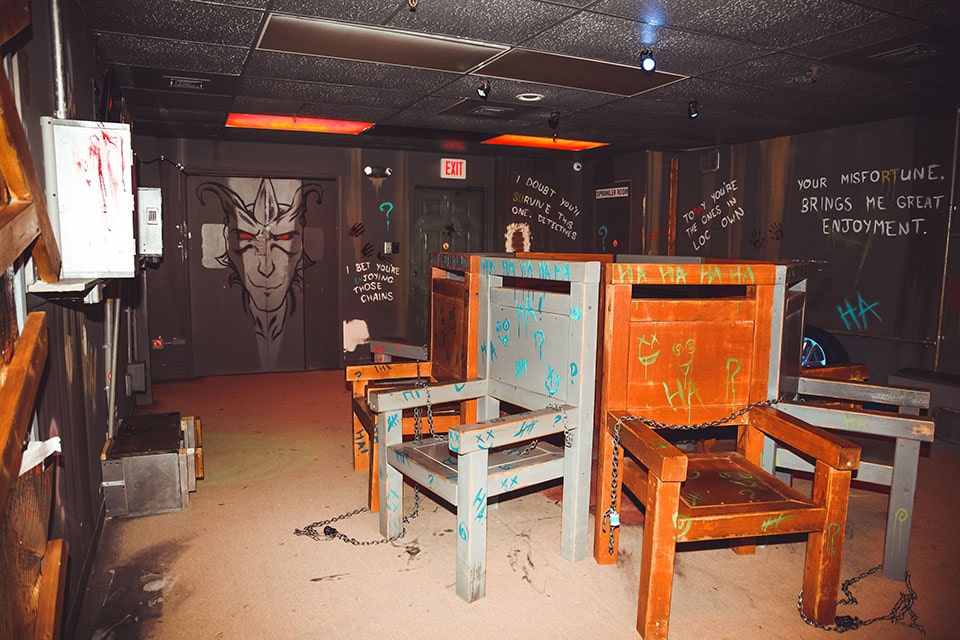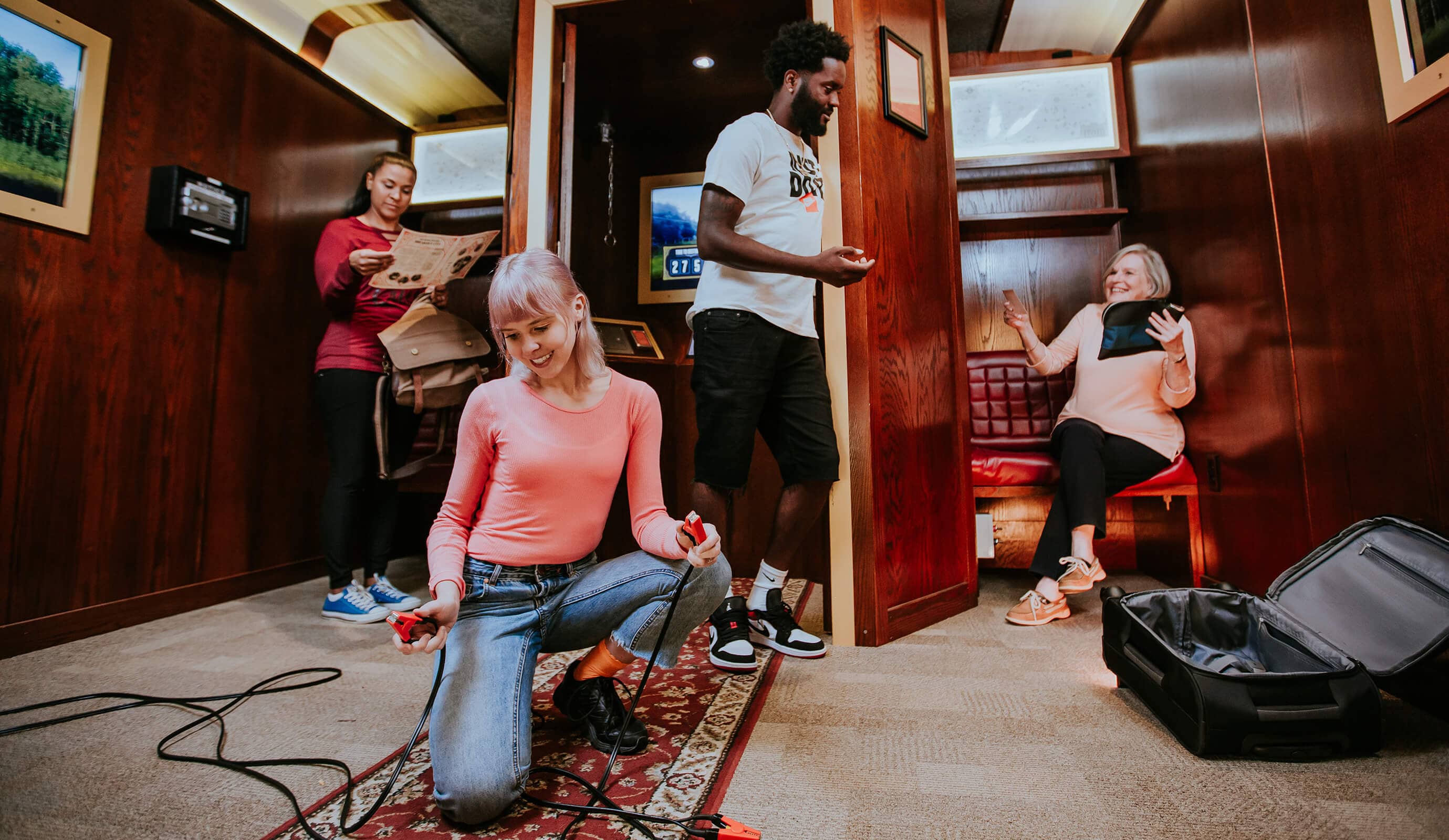Check Out the Best Escape Room in Minneapolis-- Book Your Experience
Check Out the Best Escape Room in Minneapolis-- Book Your Experience
Blog Article
Team Methods: How to Collaborate Efficiently in a Getaway Room
Groups must actively listen to each member's insights, designate roles that align with individual strengths, and maintain regular check-ins to make certain focus and avoid redundancy. By promoting an atmosphere that values communication and adaptability, teams can significantly enhance their efficiency and success rates.
Establish Clear Communication

To facilitate clear communication, it is vital to assign a central factor of contact for information circulation. This role includes summing up findings and recommended methods to ensure everyone remains on the same page. In addition, adopting an organized approach to conversations can protect against chaotic exchanges. Quick, concentrated updates from each group participant can keep the team educated without overwhelming them with info - best escape room.

Designate Duties Purposefully
While clear interaction establishes the foundation for efficient team effort, appointing roles purposefully ensures that each staff member's toughness are made use of efficiently. In a getaway area situation, the time-sensitive and intricate nature of difficulties necessitates an efficient method to task delegation. By identifying and leveraging private proficiencies, groups can enhance their problem-solving capabilities and enhance overall efficiency.
Someone with a keen eye for information might stand out in locating concealed things, while a sensible thinker can be much better fit to solving problems. This function frequently requires strong organizational and social skills.
Second, ensure that functions are flexible and versatile. As new obstacles emerge, the team should be able to pivot, reapportioning tasks as called for. This adaptability helps preserve momentum and prevents traffic jams that might take place as a result of rigid function tasks.
Eventually, a strategic technique to duty assignment not just maximizes the strengths of each group participant but likewise promotes a natural atmosphere, driving the team in the direction of an effective getaway.
Use Diverse Abilities
Acknowledging and taking advantage of the varied abilities within your website here team can substantially raise your performance in a retreat area. Each staff member brings distinct staminas to the table, and successfully leveraging these capacities can accelerate problem-solving and enhance total efficiency. A group participant with solid logical skills could excel at figuring out complex codes or patterns, while an additional with eager empirical abilities might rapidly find covert ideas that others may overlook.
Efficient communication is essential to utilizing these diverse skills. Encourage employee to voice their insights and concepts immediately, guaranteeing that all possible solutions are considered. This comprehensive technique cultivates a dynamic setting where imagination and critical reasoning can flourish. Additionally, designating tasks that straighten with each member's toughness can avoid traffic jams and ensure that development is continuous.
Additionally, variety in skills commonly translates to variety in believing designs, which is indispensable in a retreat room setting. While some challenges may need rational reasoning and precision, others may profit from imaginative and lateral reasoning. By acknowledging and leveraging this variety, groups can deal with a wider variety of challenges better, consequently enhancing their possibilities of an effective retreat.
Manage Time Successfully

First, allot first mins for a quick survey of the space. Determine noticeable problems and split tasks based upon employee' toughness, guaranteeing that nobody is idle. Set internal time checkpoints to review progression regularly; for instance, aim to have half the puzzles addressed by the mid-point of the video game. This Homepage technique can aid maintain the group concentrated and protect against time from escaping unnoticed.
Additionally, prevent one-track mind. If a challenge is taking also long, rotate staff member or go on to another difficulty, returning later on with fresh viewpoints. Communication is paramount-- maintain everybody upgraded on solved challenges and continuing to be jobs to avoid redundant initiatives.
Last but not least, utilize any type of hints or clues sparingly however purposefully - best escape room. Understanding when to ask for help can save important time. By adhering to these time management concepts, groups can considerably enhance their chances of an more information effective and pleasurable retreat space experience
Debrief and Show
Representation is an essential element of team growth and enhancement in the context of retreat areas. When the obstacle is completed, whether efficiently or otherwise, it is vital for the team to participate in a structured debriefing session. This process permits employee to assess their efficiency, determine strengths, and determine locations for renovation.
Start the debrief by discussing what worked out. Highlight certain circumstances of effective communication, analytic, and collaboration. Identifying these positive habits reinforces them and motivates their repetition in future difficulties.
Review moments of confusion, miscommunication, or inefficient techniques. Motivate an open and constructive dialogue where team participants can share their perspectives without fear of criticism.
Conclusion
In verdict, successful cooperation in a retreat area is based upon clear communication, strategic duty projects, the efficient application of diverse abilities, and competent time monitoring. By producing a natural and adaptive group setting, the possibility of efficiently resolving problems and accomplishing the goal of leaving the space is dramatically improved.
Report this page